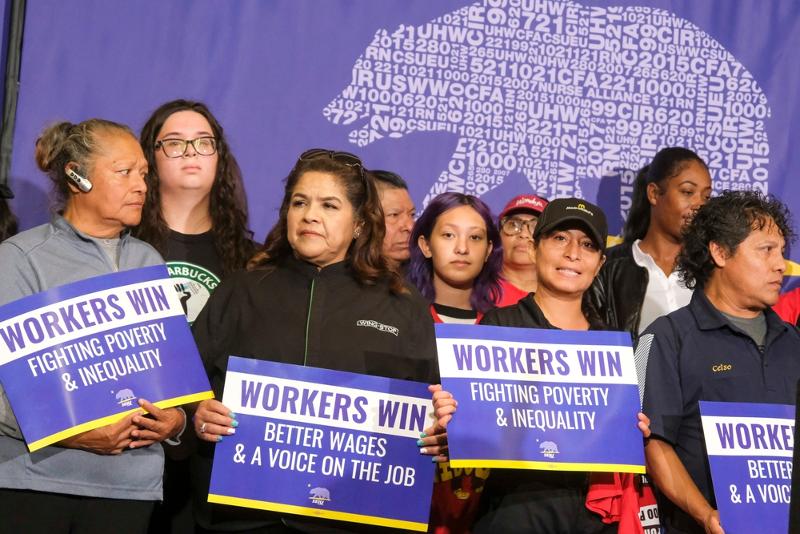
California's new method for setting fast-food wages calls for employers and employees to cooperate in determining future pay rates. But there were few glimmers of a collaborative spirit in the days leading up to the new process’ official start.
The parties continued their bickering through the final hours of the ramp-up, suggesting that the next meeting of the Fast Food Council, the deliberative body that will set the minimum wage for most of the state's fast-food workers, might devolve into a gang fight. Of the panel’s nine members, four aired their grievances with the other side in at least semi-public fashion.
That animosity was not on display in the Council’s initial meeting, which ran four hours in mid-March. But that live-streamed gathering was more of a meet-and-greet than a true business session. The law creating the panel had already set a $20-an-hour minimum for all employees of California fast-food restaurants with at least 59 sister stores nationwide. Council members had little to do but introduce themselves and learn how the body would function in subsequent get-togethers.
But as the clock ticked closer to the new wage taking effect on April 1, longstanding antagonisms flared again.
The Service Employees International Union (SEIU) had used its political might to win California fast-food workers an active role in setting their own wages, a first for the industry’s workforce. Despite that historic victory, the union’s top official in California took another swing Thursday at fast-food chains, publicly portraying them as greed-mongers for resisting a 25% hike in the lowest wage they can pay.
Two seats on the Council were reserved for actual fast-food workers. The SEIU made both of those individuals, one from Jack in the Box and the other from McDonald’s, available for interviews about the merits of the new wage-setting model. Each could recount how their employers had left them vulnerable to abuse and injury, the union indicated.
Representatives of Wendy’s, Taco Bell, Krispy Kreme and El Pollo Loco will have a chance to defend fast-food employers during the Council’s next meeting, since all have a proxy on the panel. Council Member Richard Reinus opted not to bite his tongue until then.
As one of the four seat holders representing fast-food employers, the former CEO of a West Coast Krispy Kreme franchise sent a letter to three business journalists who’d recently written about California’s new wage-setting setup. The communication, a copy of which was provided to Restaurant Business, re-argues the industry’s position that organized labor hoodwinked the state legislature into unnecessarily changing fast food’s wage-setting process.
Reinus contended in the letter that proponents of the change won the support of lawmakers by portraying California’s fast-food business as the employer community’s “problem child,” a frequent and flagrant exploiter of low-income workers. Yet even the state’s own statistics show those accusations are false, Reinus wrote. Indeed, he asserted, the data show that the fast-food business is a better employer than other California industries.
He dismissed the legislation creating the Council as “a solution looking for a problem.” The upshot, Reinus said, will be an inability among more Californians to afford fast food.
The public has been largely mute on what a new wage might mean for the population at large, even with some chains already raising prices and planning layoffs to contend with the hike.
Marty Piatt, an architect and author, isn’t in alignment with that silent majority. He argued in a guest editorial for the Chico (California) Enterprise-Record that the law creating the Council, AB 1228, violates the Equal Protection Clause of the U.S. Constitution because it only benefits fast-food workers, with no direct effect on Californians employed in other fields.
At press time, he was calling for a federal court injunction to halt the $20 wage from going into effect and the adoption of a class action challenging the legality of AB 1228.
But as of this writing, two days before the new wage goes into effect, it’s all systems go.
Members help make our journalism possible. Become a Restaurant Business member today and unlock exclusive benefits, including unlimited access to all of our content. Sign up here.
